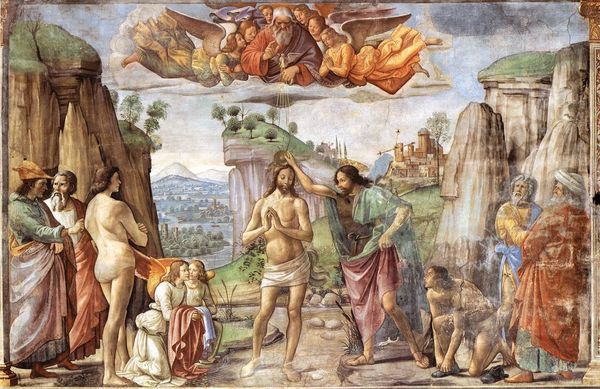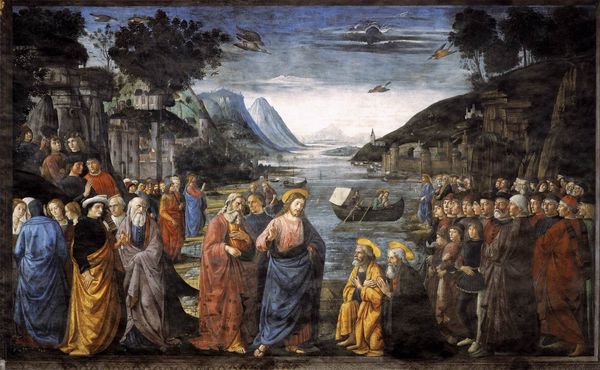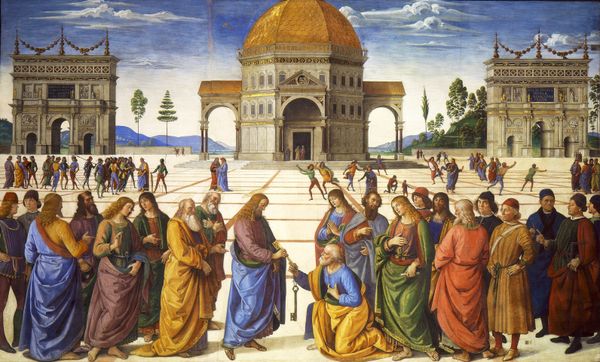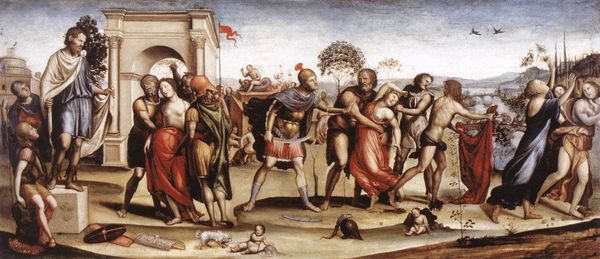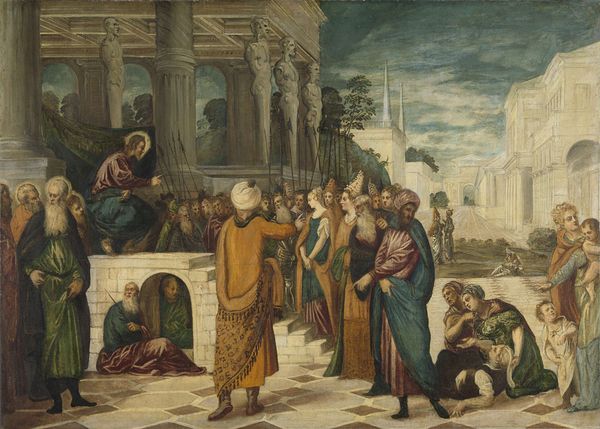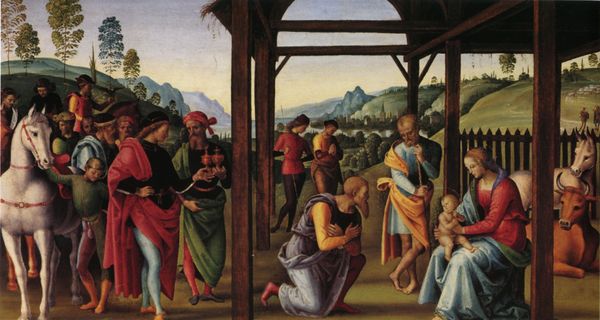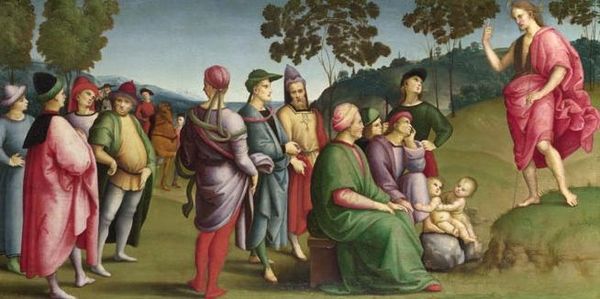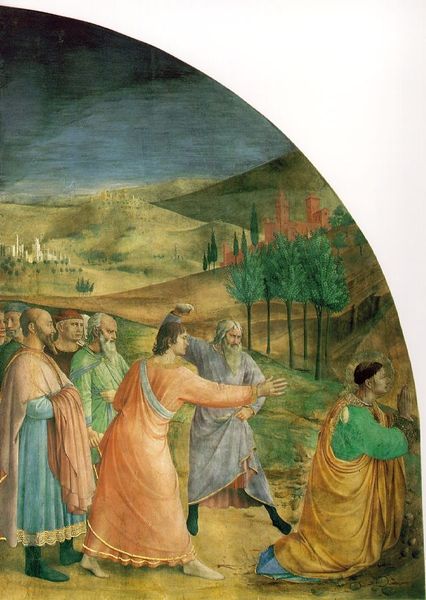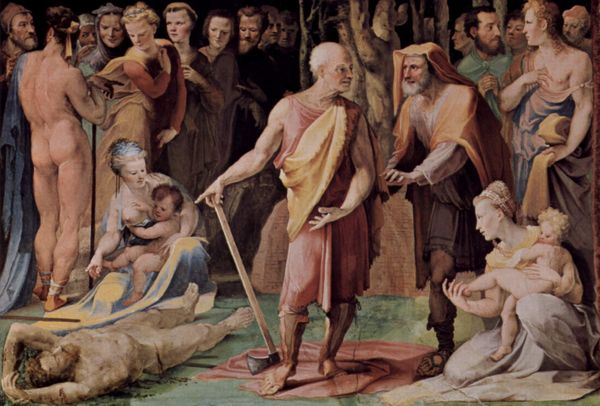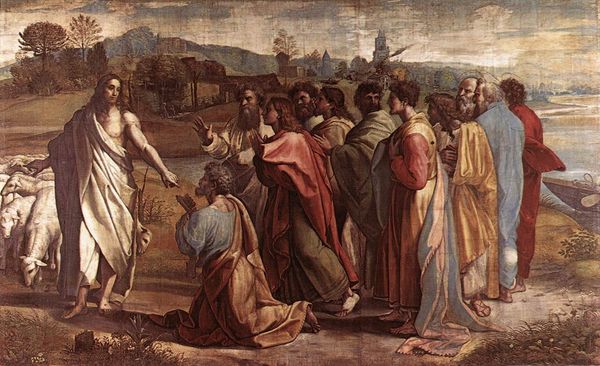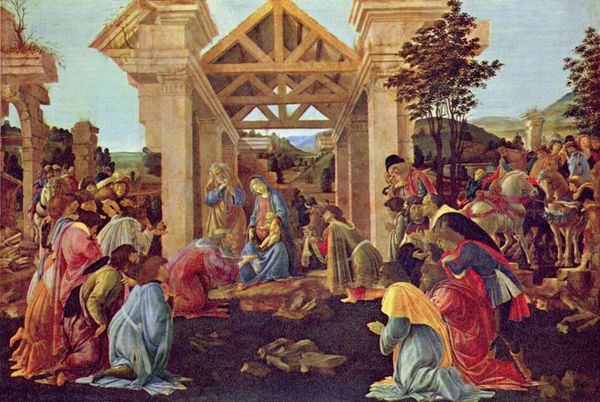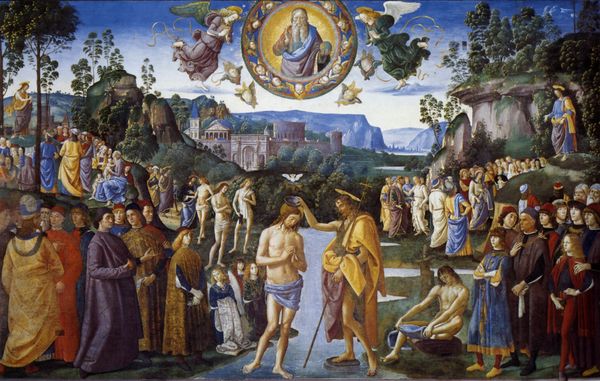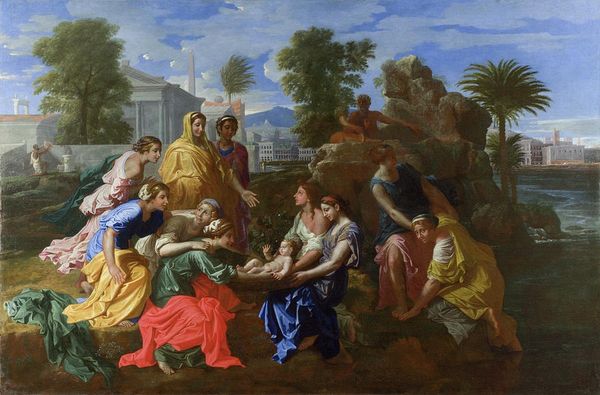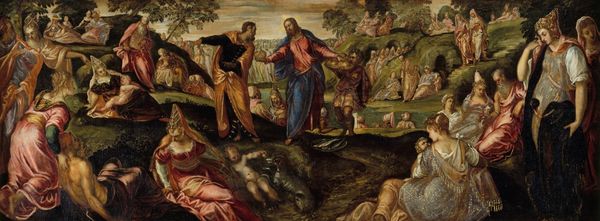
Preaching of St. John the Baptist 1490
0:00
0:00
domenicoghirlandaio
Santa Maria Novella, Florence, Italy
painting, fresco
#
portrait
#
narrative-art
#
painting
#
figuration
#
fresco
#
oil painting
#
christianity
#
history-painting
#
italian-renaissance
Copyright: Public domain
Editor: Here we have Domenico Ghirlandaio's fresco, "Preaching of St. John the Baptist," created around 1490. It’s part of the Tornabuoni Chapel cycle in Santa Maria Novella, Florence. I'm struck by how theatrical the composition is. What strikes you most about this work? Curator: It's the visual tapestry Ghirlandaio weaves between the sacred and the secular that truly captivates me. Look closely – the cityscape in the background, those sharply rendered Florentine faces among the crowd. Doesn’t it evoke a sense of the everyday woven into the biblical narrative? Editor: It definitely bridges those worlds. What do you think that was intended to communicate? Curator: Consider the cultural memory at play. The people of Florence, when viewing this, were not merely seeing a depiction of the past; they were seeing themselves reflected within it. Ghirlandaio is imbuing the biblical narrative with a potent contemporary relevance. How do the poses and gestures of the figures inform your interpretation? Editor: I see. The gestures almost feel… stagey, very deliberate and not naturalistic. Like a script is being followed. Curator: Precisely. And note the symbolism inherent in the clothing, the arrangement of figures – visual cues intentionally deployed to convey meaning and hierarchy. Doesn’t it remind you of Byzantine iconography? The artist merges the old with the new, giving particular weight to symbols that cross the boundaries of time. Editor: So, the past informs the present and the present reinterprets the past? Curator: Absolutely. It reveals how symbols evolve in meaning across time. Ghirlandaio has created a visual echo, ensuring that the echoes of the sermon resonated through time, into the very fabric of Florentine life. Editor: This really opened my eyes to looking at paintings through their symbolism and what it represents over time. Thanks!
Comments
No comments
Be the first to comment and join the conversation on the ultimate creative platform.
